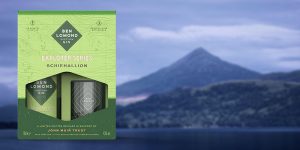In a move that underlines the company’s commitment to sustainability, Dunnet Bay Distillers has appointed Sarah Lyons to the newly created position of Environment Manager.
The family-owned Distillery prides itself on its environmental credentials and has ambitions to further improve its sustainability. The firm is based on the north Scottish coast, overlooking the sea. The company is proud of its coastline and gardens from which botanicals used in the products are foraged or grown.
Lyons takes up the post after five years in charge of the company’s finances. She has a degree in Mathematics & Oceanography and, whilst she has enjoyed her roles with large financial institutions in the past and, more recently, with Dunnet Bay, this is her dream job. She said: “I’ve always longed for a career in the environmental sector, and I am delighted to have been given the opportunity.”
Claire Murray, a director and a co-founder of Dunnet Bay Distillers, said: “It is unusual for a company of our size and scale, employing fewer than 20 people, to have a full-time, senior staff member responsible for sustainability. We are excited about this new role and believe Sarah is the perfect candidate given her passion for the environment and her knowledge of the company. She embraces the ethos. It was the logical next step for us as we are always striving to ensure that we remain environmentally conscious.”
Dunnet Bay is currently working towards Planet Mark certification. The priority will then be to develop a long-term strategy to support decarbonisation, waste initiatives and the circular economy.
Eighteen months ago, sustainable, recyclable pouches were introduced. These form the central platform of the Dunnet Bay Distillery’s subscription service, the Refill Rewards Club. Members receive the refill pouch of their choice on a regular basis and refill the collectable ‘bottles for life’. The empty pouches can be returned by freepost with no envelope needed. In return for their loyalty, members receive a goody box with every refill.
The company is looking to minimise its energy and water use, as well as monitoring all waste. Already, food waste is composted and used in the distillery gardens. Botanicals used to create Rock Rose Gins and Holy Grass Vodka are sent – with permission from the Scottish Environment Protection Agency – to a local farmer to benefit agricultural land. For much of the year, water to heat the stills is sourced from a burn then returned, completely clean. Solar panels cater for all the distillery’s energy requirements.
Furthermore, the firm’s staff are to be incentivised to take part in regular beach clean-ups starting this spring on Earth Day, as Lyons explained: “We will be starting a year-long challenge collecting plastics and other waste found on the shores near here. It’s not just the large, obvious pieces of waste such as single-use bottles for which we’ll be combing the beach, but smaller particles, too, as these microplastics are often ingested by seabirds and marine animals.”




